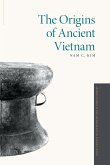New nations require new histories of their struggles for nationhood. Postcolonial Vietnam takes us back to the 1950s to see how official Vietnamese historians and others rethought what counted as history, what producing history entailed, and who should be included as participants and agents in the story. Beginning with government-appointed historians' first publications in 1954 and following their efforts over the next thirty years, Patricia M. Pelley surveys this daunting process and, in doing so, opens a wide window on the historical forces and tensions that have gone into shaping the new nation of Vietnam.Although she considers a variety of sources-government directives, census reports, statistics, poetry, civic festivities, ethnographies, and museum displays-Pelley focuses primarily on the work of official historians in Hanoi who argued about and tried to stabilize the meaning of topics ranging from prehistory to the Vietnam War. She looks at their strained and idiosyncratic attempts to plot the Vietnamese past according to Marxist and Stalinist paradigms and their ultimate abandonment of such models. She explores their struggle to redefine Vietnam in multiethnic terms and to normalize the idea of the family-state. Centering on the conversation that began in 1954 among historians in North Vietnam, her work identifies a threefold process of creating the new history: constituting historiographical issues, resolving problems of interpretation and narration, and conventionalizing various elements of the national narrative. As she tracks the processes that shaped the history of postcolonial Vietnam, Pelley dismantles numerous cliches of contemporary Vietnamese history and helps us to understand why and how its history-writing evolved.
Dieser Download kann aus rechtlichen Gründen nur mit Rechnungsadresse in A, B, BG, CY, CZ, D, DK, EW, E, FIN, F, GR, HR, H, IRL, I, LT, L, LR, M, NL, PL, P, R, S, SLO, SK ausgeliefert werden.









